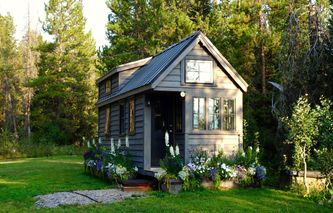ESG (Environmental, Social, and Governance) has become a polluted word for many traders and investors - but that doesn't mean it's going completely away. Nor does that mean you can't profit from nature or sustainable practices. But there are some opportunities in the regenerative ag, conservation, and green real estate spaces.
To be clear, we're not just discussing planting a tree in your backyard and calling it a day. No, we're embarking on a journey where your greenbacks can do some green good and grow alongside your investments. Here are a few ideas where the investment world collides with the natural one. Let's begin.
Regenerative Agriculture
Think farming, but with a twist. This isn't about growing the biggest pumpkin. It's about farming practices that restore the soil, improve water retention, and increase biodiversity. Investing here means your money is literally in the ground, doing good. But it still won't grow on trees. Your money, that is, not the pumpkins. The pumpkins won't grow on your trees, either.
As an old-school commodity trader who got started in the ag. markets, things like cover cropping, no-till farming initiatives, and livestock integration projects are all great ways to invest in nature - if you're a farmer/producer. Which most of us are not. But that doesn't mean you can't get some exposure to it:
Archer Daniels Midland Company (NYSE: ADM): While primarily known as a global leader in food processing and commodities trading, ADM is involved in sustainable agriculture practices that support the ethos of regenerative agriculture through its commitment to reducing environmental impact and improving crop yields sustainably.
Where to buy ADM
Conservation Easements
Again, if you're not a land owner, things like private land conservation or water conservation projects are not going to be options - for most people, those won't be options. For land owners, there's a plethora of tax credits and government programs that pay you to do nothing to parts of your land.
Investing in land to place under conservation easements can protect wildlife habitats, scenic landscapes, and historical sites. These investments often qualify for tax deductions, providing financial benefits while preserving the land for future generations.
Direct investment in conservation easements through publicly traded entities is challenging, as these are typically the domain of non-profits and private landowners. However, there is one big name in the space that is publicly traded:
Weyerhaeuser (NYSE: WY): Oh man, this one might generate some literal hate mail if you are a tree hugger. Why? Because Weyerhaesur is one of the world's largest private owners of timberlands. They make stuff with wood. They cut down a lot of trees, and I mean a lot. But hold your hate spam for a second; Weyerhaeuser manages its forests, focusing on sustainability, conservation, and restoration efforts, which aligns with the broader goals of conservation easements.
Where to buy WY
Green Real Estate
This investment option doesn't need a lot of explanation because it is self-explanatory: it's green real estate. We're talking about eco-friendly residential developments, sustainable commercial properties, and innovative green infrastructure projects.
Things of this nature (see what I did there) include commercial buildings with LEED (Leadership in Energy and Environmental Design) certification or similar green credentials, developments integrating green roofs, and complicated projects like permeable pavements. These are cool because they mitigate environmental impact but also address urban challenges like stormwater management and the heat island effect.
Investing in green real estate is more straightforward, with several REITs and companies emphasizing sustainability and energy efficiency in their portfolios:
Hannon Armstrong Sustainable Infrastructure Capital, Inc. (NYSE: HASI): A capital provider focused on sustainable infrastructure projects that reduce carbon emissions and increase energy efficiency, HASI invests in green real estate, among other sectors.
Prologis (NYSE: PLD): As a leading global logistics real estate company, Prologis emphasizes sustainability in its development projects, with many of its buildings certified for environmental standards.
Kilroy Realty Corporation (NYSE: KRC): This REIT focuses on office properties in the U.S. and is noted for its commitment to sustainability, with numerous properties achieving LEED certification.
Where to buy HASI, PLD, and KRC
Diversify Into Nature
Your investments might not physically grow on trees, but they can certainly branch out in ways that nurture your portfolio and the Earth. Who says you can't have your (sustainably sourced) cake and eat it too?





.jpg)


